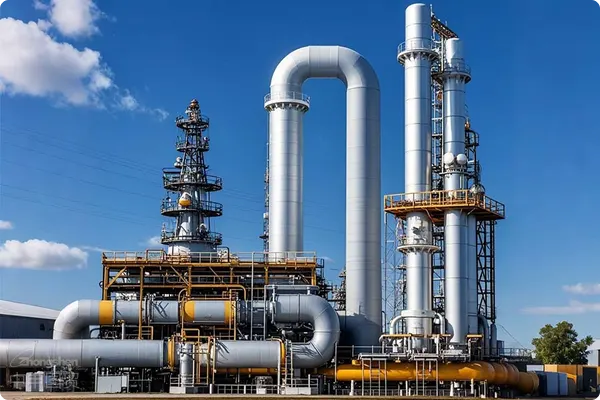- Shanghai Zhongshen International Trade Co., Ltd. - Two decades of trade agency expertise.
- Service Hotline: 139 1787 2118
Amid increasingly complex geopolitical tensions and internal energy policy pressures, Europe has gradually increased its imports of Russian gas. Although the EU emphasizes reducing reliance on Russian energy as part of sanctions against Moscow, reality shows that Russian gas, especially through the TurkStream pipeline and liquefied natural gas (LNG), has become an irresistible choice for many European countries.

Data from the first seven months of 2024 shows that the EUs gas imports via the TurkStream pipeline surged by 40.5% year-on-year, reaching 9.26 billion cubic meters of methane. In July alone, Russian supplies through this pipeline increased by 29% month-on-month, reaching 1.5 billion cubic meters. This growth has led EU countries to consume approximately 92 million cubic meters of Russian gas daily via Ukrainian and Turkish pipelines combined.
However, this trend is not limited to pipeline gas. LNG imports have also shown significant growth in countries including France, Spain, and Belgium. Notably, France more than doubled its LNG imports from Russia in the first half of this year, rising from 2 billion cubic meters in 2023 to 4.4 billion cubic meters. Behind this trend lies a profound economic rationale: Russian gas, whether piped or liquefied, offers a clear price advantage. This has left Europe torn between policy-driven efforts to reduce dependence on Russia and the undeniable pressure of cost efficiency.
Historical data reveals that Russian gas exports to Europe have experienced dramatic fluctuations since the outbreak of the Russia-Ukraine conflict. In 2022, Russia exported 63.8 billion cubic meters of gas to Europe, but this figure plummeted by 55.6% to 28.3 billion cubic meters in 2023. However, in 2024, particularly from January to July, Russian gas exports to Europe reached 18.2 billion cubic meters, marking a 23% year-on-year increase. This rebound underscores that even amid tense international relations, Russian gas remains an indispensable part of Europes energy mix.
Additionally, the gas transit agreement between Russia and Ukraine is set to expire on December 31, 2024, drawing attention to future supply security. While Moscow has expressed willingness to continue gas transit, the Kyiv government has stated it will not renew the agreement with the Kremlin. This uncertainty has further heightened Europes concerns about energy supply security.
Meanwhile, the rise in LNG imports is particularly striking. Russian LNG is priced significantly lower than supplies from Arab, African, and American sources, making it economically attractive for countries like France. In the first half of this year, the EUs LNG imports from Russia increased by 7% year-on-year. This trend not only highlights the competitiveness of Russian LNG but also reflects Europes pragmatic choices under economic pressures.
Despite the EUs policy-driven efforts to reduce reliance on Russian energy, market forces and practical needs often push countries toward more flexible energy strategies. The price advantage of Russian gas ensures its strong competitiveness in the European market, adding new challenges to the EUs energy strategy adjustments. Moving forward, as the Ukraine transit agreement expires and global energy markets evolve, Europes choices in gas supply will become even more complex, with Russia continuing to play a pivotal role.
Related Recommendations
? 2025. All Rights Reserved. 滬ICP備2023007705號-2  PSB Record: Shanghai No.31011502009912
PSB Record: Shanghai No.31011502009912









